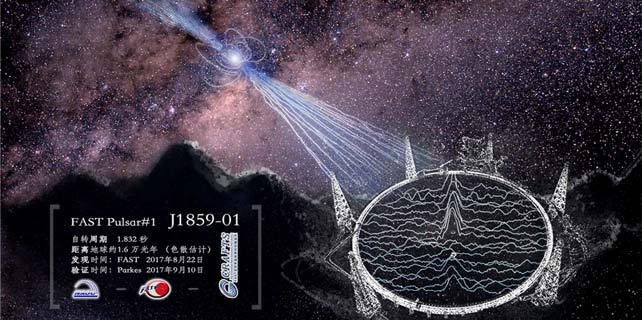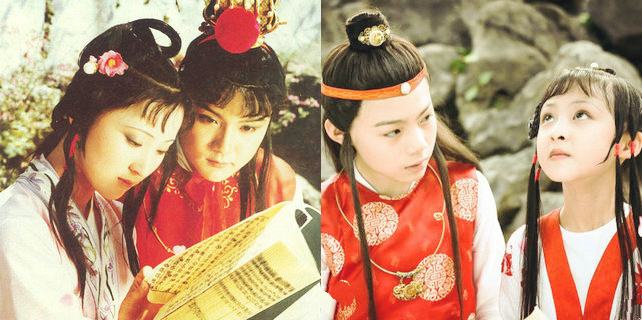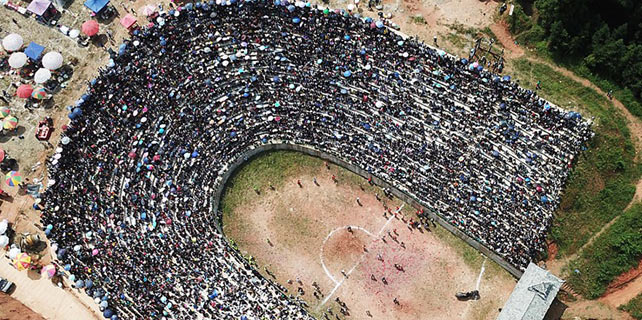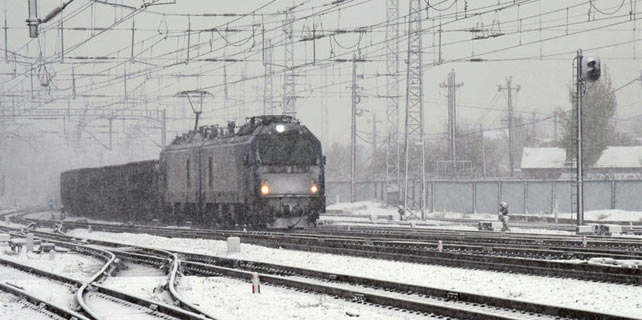Peak Perfection
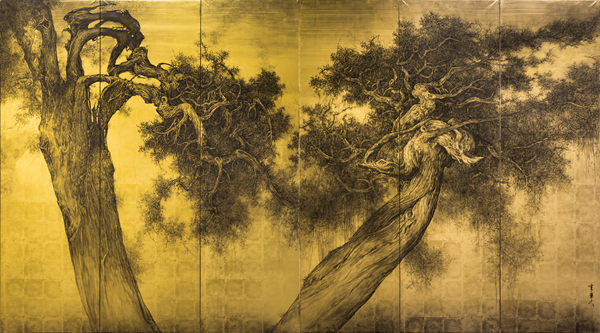 |
|
Wind Riding (2017) by Li Huayi. [Photo provided to China Daily] |
With his knowledge of Eastern and Western art, Li compares Chinese ink painting to Western abstract expressionist art, which both aim to express the artists' sentiments via the depiction of landscapes.
Li's paintings mainly focus on the subjects of mountains, trees, waterfalls and mist, which are reinterpreted by the artist after countless visits to mountain ranges around China and abroad.
Before the opening of his solo show in late September, Li visited the world's highest peak, Qomolangma, known as Mount Everest in the West. The 69-year-old said he was not strong enough to climb to the summit, but he tried to see as much as possible during his stay in its foothills. As with other mountains he has visited, the artist says he enjoys the process of climbing and absorbing picturesque landscapes.
His favorite peak, Huangshan Mountain in Anhui province, draws tourists from around China and the rest of the world and is famous for its attractive pine trees.
"Huangshan Mountain is like a work by a designer. There are no weeds on the rocks and the pine trees have a very unique look," Li says.
And that is how the artist unveils his reimagined landscapes on his paper and gilded screens - crooked trees clinging to rugged cliffs.
Catherine Kwai, founder of the Kwai Fung Hin art gallery that's presenting Li's solo show, says Li usually embarks on a trip to the mountains after finishing a work. An old friend of Li, Kwai jokes that he is too slow at painting because he has only completed no more than 400 works over the past 60 years.
"He is very meticulous in his painting. It's incredible to see the detail he puts into each leaf, even when the scroll is several meters long," says Kwai.
Li explains his painting process is more like an exercise in practice, where the act of repetition allows him to fuse his own sentiments into each stage of the painting through his brush strokes.
Several years ago, Li set up a studio in Beijing outside of his base in San Francisco. His work space is downtown, near the landmark China Central Television Tower.
"Many friends say that, although Beijing lies beyond my studio's curtains, inside is totally my quiet space," Li says.
He prefers solitude when working in the city and enjoys the peacefulness of the painting process. He seldom attends parties and typically enjoys his own company.
This is reflected in Li's works, which contain no traces of human beings or their impact on the landscapes. Li's protagonists are trees, stones and water. The artist jokes that this is because he needs peace to work - and people are always noisy.
"Ink painting is a quiet art form, like the moon, while Western art is strong and vigorous, like the sun," Li explains.
If you go
9 am-5 pm, through Dec 17. Suzhou Museum, 204 Dongbei Street, Suzhou, Jiangsu province. 0512-6757-5666.
- Palace Museum limits those viewing famous painting
- Show traces influence of Zhao Mengfu on Chinese painting and calligraphy
- Chinese celebrities shine in Chinese painting style photos
- Argentine artist learns Chinese painting and calligraphy without coming to China
- Ink and wash painting exhibit draws crowds in Hong Kong







